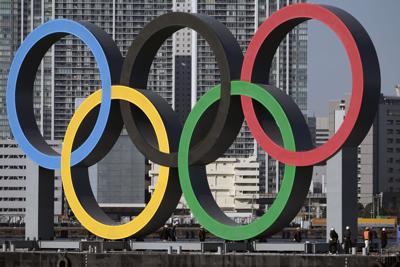URGENT UPDATE: The Trump administration has just announced a significant legal brief supporting the U.S. Olympic and Paralympic Committee’s (USOPC) controversial decision to revise its policy on transgender athletes. This development comes as the USOPC aims to restrict transgender participation in Olympic sports, raising legal and ethical questions that may lead to a courtroom showdown.
According to reports, the administration’s detailed legal guidance asserts that the policy change aligns with the Ted Stevens Act, the pivotal federal law governing the Olympic movement established in 1978. This backing provides the USOPC with necessary legal cover to implement its new regulations quietly, but experts warn that this protection does not ensure immunity from future legal challenges.
The backdrop of this decision is steeped in controversy, as it directly impacts the lives of athletes competing at the highest levels. The USOPC, based in Colorado Springs, Colorado, is now positioned to revise its rules, which could lead to an exclusionary environment for many athletes. The implications of this policy shift are immediate and far-reaching, affecting not just those in the Olympic games but also influencing broader discussions around gender identity and sports.
As reactions pour in from various stakeholders, including athletes, advocacy groups, and legal experts, the potential for a court battle looms large. The USOPC’s decision is already drawing criticism from LGBTQ+ organizations, who argue that it undermines the spirit of inclusion and equality in sports.
WHAT’S NEXT: As this situation develops, all eyes will be on the USOPC and how it implements its revised policies. Legal experts are bracing for possible litigation that could challenge the new guidelines, making this a pivotal moment in the ongoing debate over transgender rights in athletics. The coming weeks will be crucial as the sports community and legal analysts assess the fallout from this significant policy change.
Stay tuned for further updates as this story unfolds. The ramifications of this decision not only impact the Olympic landscape but also touch upon broader societal issues regarding inclusion and equality.
